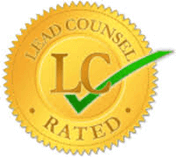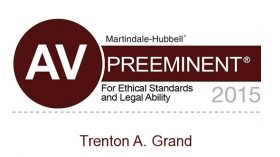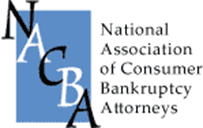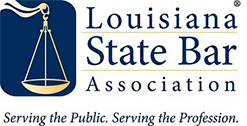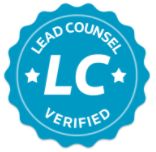
One simple mission: to help good people through hard times.
Debt Settlement Services in Houston – Grand Law Firm
Explore Your Debt Relief Options: Effective Debt Settlement Solutions with Grand Law Firm in Houston
Dealing with overwhelming debt can feel like an impossible burden. If you are struggling to keep up with your financial obligations, debt settlement may be a viable alternative to filing for bankruptcy. At Grand Law Firm, we understand how challenging it can be to navigate financial hardship, and we are here to help you explore your options for regaining financial stability. Our experienced Houston bankruptcy and debt settlement attorneys are committed to providing you with personalized legal solutions tailored to your unique situation.
Contact us today at tel:(346) 209-0438 to discuss your debt settlement options. Let us help you take the first step toward a debt-free future with Grand Law Firm.
What is Debt Settlement?
Debt settlement is a process in which a debtor negotiates directly with creditors to reduce the amount of money owed. Instead of paying off the full amount of the debt, the debtor works to settle for a lower sum, typically in a lump-sum payment or in structured installments.
This can be an appealing option for individuals who are facing significant debt but are not in a position to file for bankruptcy. Debt settlement allows you to negotiate with creditors and potentially reduce your debt burden while avoiding a lengthy bankruptcy proceeding. While debt settlement can be an effective strategy, it is crucial to have the guidance of experienced attorneys who can ensure your interests are protected throughout the process.
At Grand Law Firm, our team of skilled attorneys has extensive experience negotiating debt settlements on behalf of clients. We’ll guide you through the entire process, from assessing your financial situation to negotiating with your creditors and finalizing the settlement terms.
Benefits of Debt Settlement
Debt settlement offers several benefits over traditional bankruptcy and other debt repayment methods, including:
- Lower Overall Debt
One of the primary benefits of debt settlement is that you may be able to significantly reduce the amount of debt you owe. Through negotiation, many creditors are willing to accept less than the full amount you owe, which can result in considerable savings. - Avoiding Bankruptcy
For some individuals, bankruptcy may seem like the only option to deal with unmanageable debt. However, bankruptcy can have long-lasting consequences on your credit score and financial future. Debt settlement allows you to avoid filing for bankruptcy and still reduce your debt. - Faster Resolution
Unlike a bankruptcy proceeding, which can take months or even years to resolve, debt settlement can typically be completed in a much shorter time frame. In many cases, the debt settlement process can be completed in a matter of months, depending on the complexity of your financial situation and the number of creditors involved. - No Court Involvement
Debt settlement does not involve the court system, making it a quicker and more straightforward alternative to bankruptcy. Instead of attending court hearings, you’ll work directly with your creditors and your attorney to reach a settlement.
How Debt Settlement Works
The process of debt settlement generally involves the following steps:
- Step 1: Assessment of Financial Situation
Before proceeding with debt settlement, our attorneys will conduct a thorough review of your financial situation. This includes evaluating your total debt, income, and assets to determine if debt settlement is a viable option for you. - Step 2: Negotiation with Creditors
Once we have a clear picture of your financial situation, we will begin negotiating with your creditors. Our attorneys have years of experience working with creditors and are skilled at negotiating reductions in the amount of debt owed. - Step 3: Agreement on Settlement Terms
After successfully negotiating with your creditors, we will work to formalize the settlement terms. This may include a lump-sum payment or a series of payments, depending on your financial circumstances. Our goal is to secure the best possible settlement for you. - Step 4: Paying Off Settled Debts
Once a settlement agreement is reached, you will begin making payments according to the terms outlined in the agreement. After the debt is paid off, the creditor will mark your account as “settled” or “paid in full.” - Step 5: Review Your Financial Situation
After completing the debt settlement process, we’ll review your financial situation to ensure that you’re on the right path toward rebuilding your credit and achieving long-term financial stability.
Alternatives to Debt Settlement
While debt settlement can be an effective solution for some individuals, it is not the only option available. Some other alternatives to debt settlement include:
- Debt Consolidation
Debt consolidation involves combining multiple debts into a single loan with a lower interest rate. This can simplify payments and potentially reduce the total amount of debt owed. - Debt Management Plans (DMP)
A debt management plan is an agreement between the debtor and creditors where the debtor makes one monthly payment to a credit counseling agency, which then distributes the payments to creditors. - Bankruptcy
In cases where debt settlement and other options are not sufficient, bankruptcy may be the best solution. Chapter 7 and Chapter 13 bankruptcy offer individuals the opportunity to discharge or restructure their debts.
FAQs About Debt Settlement
- What types of debt can be settled?
Most unsecured debts, such as credit card bills, medical bills, and personal loans, can be settled. Secured debts, such as mortgages or car loans, generally cannot be settled through this process. - How long does debt settlement take?
The length of the debt settlement process varies depending on your specific situation, but it typically takes between 2 to 4 years to complete the settlement. The more creditors involved, the longer the process may take. - Will debt settlement affect my credit score?
Debt settlement may have a negative impact on your credit score, as creditors may report the settled debt as “paid less than full” or “settled for less than owed.” However, settling your debt can still be a better option than bankruptcy, and it may allow you to begin rebuilding your credit over time. - Can I settle my debt without an attorney?
While it is possible to negotiate debt settlements on your own, having an experienced attorney on your side can greatly increase your chances of success. Attorneys can help ensure that your rights are protected and that you secure the best possible settlement terms. - How does debt settlement differ from bankruptcy?
Debt settlement allows you to reduce your debt without filing for bankruptcy. Bankruptcy may offer more significant debt relief but comes with long-term consequences for your credit and financial future. - Is debt settlement right for everyone?
Debt settlement may be a good option for individuals who have significant unsecured debt but are not eligible for bankruptcy or want to avoid bankruptcy. However, it may not be the best option for everyone. It’s important to discuss your financial situation with an attorney to determine the best course of action.
Need assistance with your debt settlement? Contact Grand Law Firm at tel:(346) 209-0438 today to schedule a free consultation!
The Opinions That Matter
-
Would recommend Grand Law Firm. They were helpful in everyway.
Jodie M -
"I would recommend Grand Law firm to anyone who seeking to file bankruptcy. They staff have the best customer service ever! They are professional and very helpful and always available when needed. AAAAA++++ service the best!"Keisha H.
-
"Thank You and God Bless Your Staff !! GLF went out of the way to work with me. I appreciate all that was done through my difficult time. I wasn’t the easiest client, so Thank You for your patience."A. Reed



